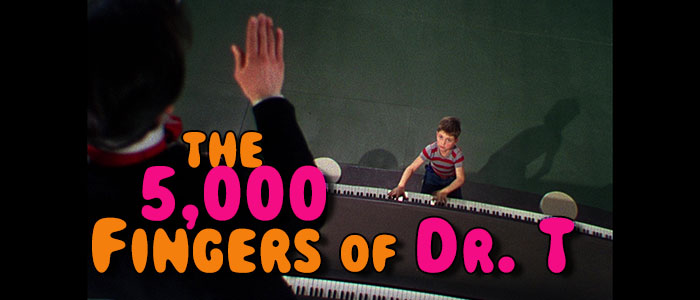
Color, 1953, 89 mins. 49 secs.
Directed by Roy Rowland
Starring Tommy Rettig, Hans Conreid, Peter Lind Hayes, Mary Healy
Indicator (Blu-ray & DVD) (UK R0 HD/PAL), Mill Creek (Blu-ray) (US RA HD), Sony (DVD) (US R1 NTSC)

Color, 1953, 89 mins. 49 secs.
Directed by Roy Rowland
Starring Tommy Rettig, Hans Conreid, Peter Lind Hayes, Mary Healy
Indicator (Blu-ray & DVD) (UK R0 HD/PAL), Mill Creek (Blu-ray) (US RA HD), Sony (DVD) (US R1 NTSC)
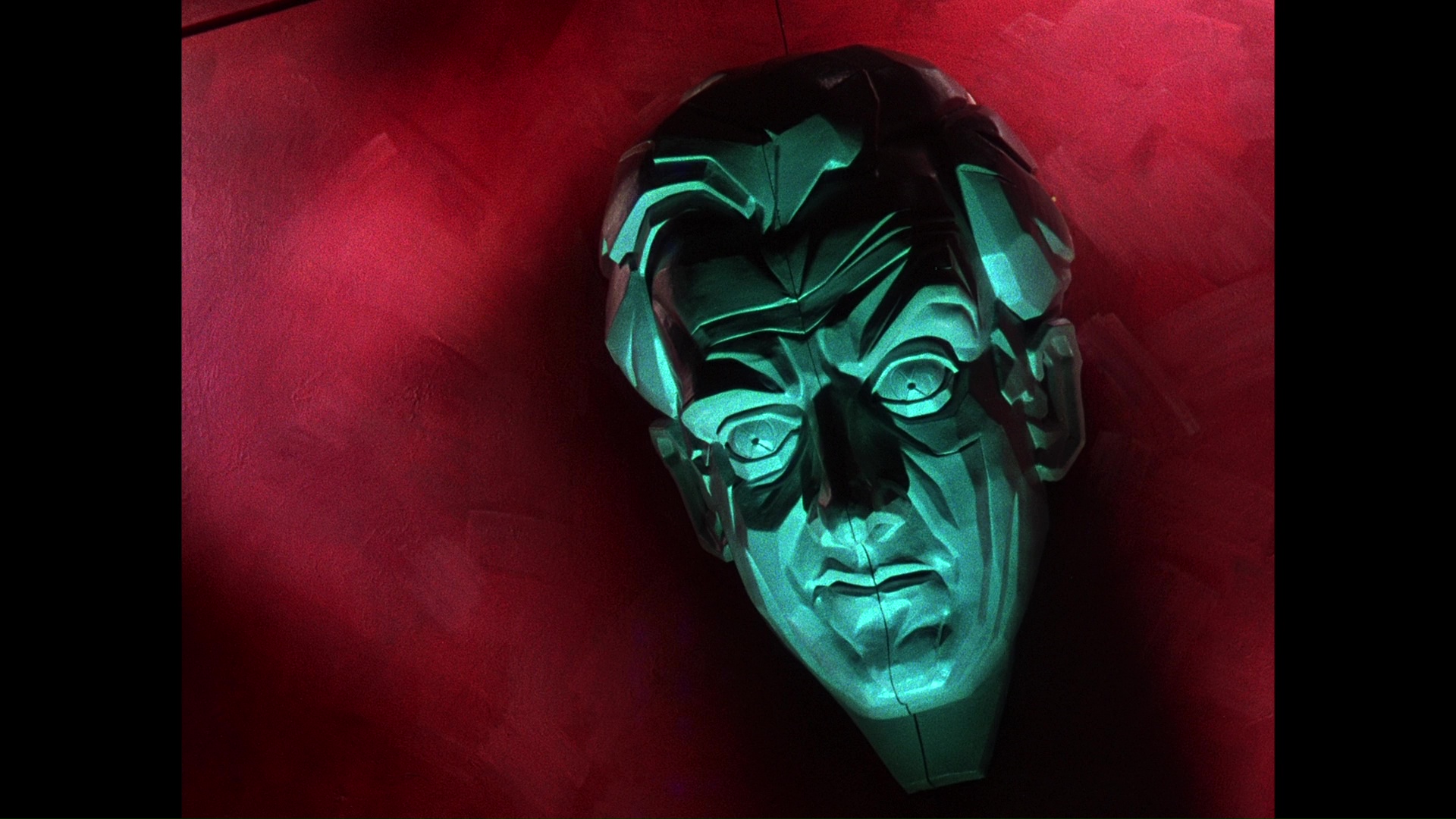
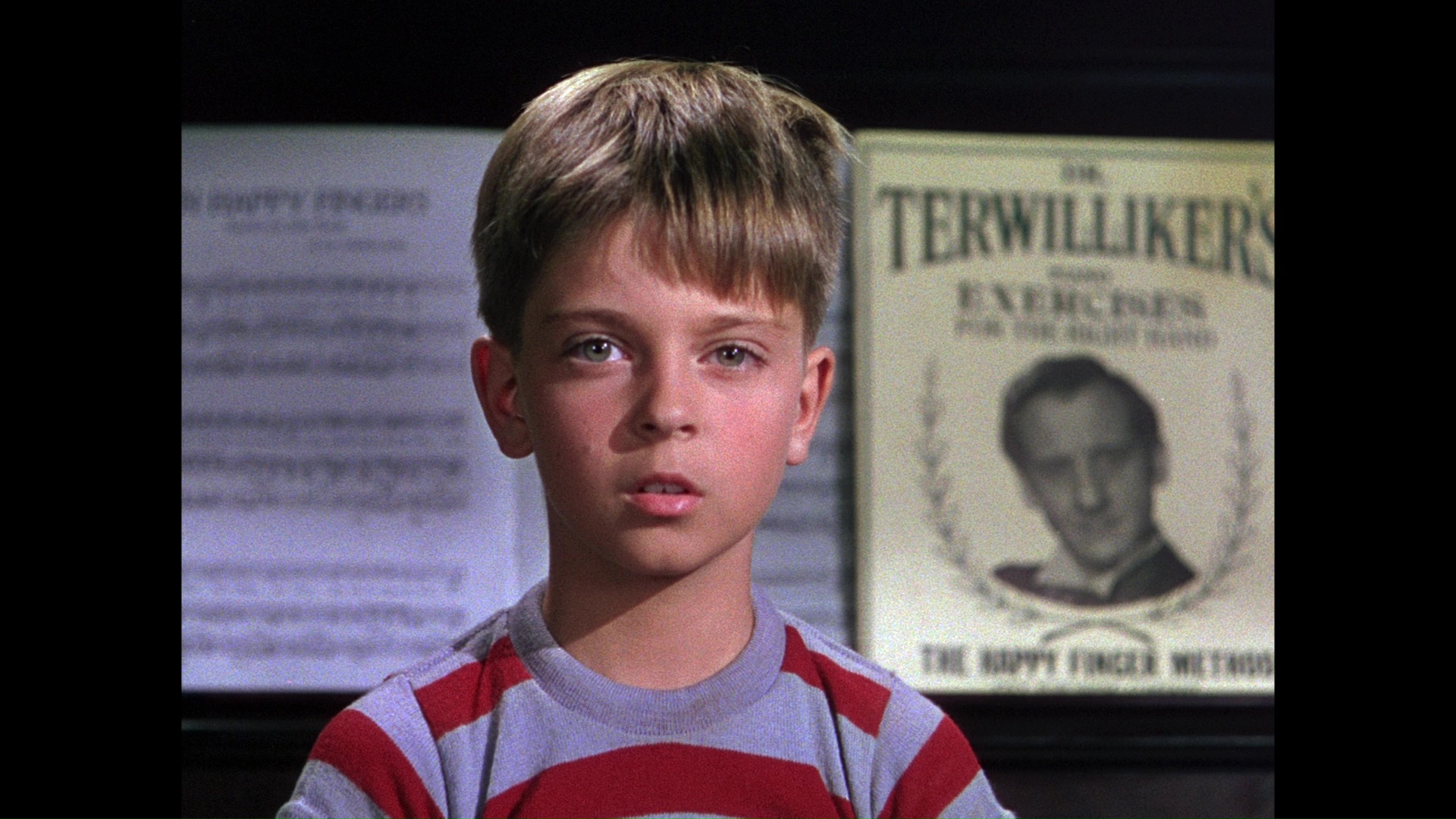 Making a family-friendly fantasy film is always a tricky prospect; for every film that scores a direct hit, be it The Wizard of Oz or The Neverending Story, you have dozens of films that never quite found an audience or only became minor cult favorites. Traditional classic status wasn't to be for the atomic-age musical fantasia The 5,000 Fingers of Dr. T, which was greeted by scathing reviews and an indifferent public when it was released by Columbia Pictures after a massive amount of recutting and reshoots. However, even with the attempts to tone down the film's darker and more satirical aspects, the result is still a surreal delight that made its mark on generations of younger viewers whose psyches were imprinted with images of hundreds of young children forced to play on pianos stretching to infinity. Its fan following has contributed to grow over the years as well, helped in part by the fact that this was the brainchild of Dr. Seuss and was produced by Stanley Kramer, who would be one of the studio's biggest filmmakers for over a decade.
Making a family-friendly fantasy film is always a tricky prospect; for every film that scores a direct hit, be it The Wizard of Oz or The Neverending Story, you have dozens of films that never quite found an audience or only became minor cult favorites. Traditional classic status wasn't to be for the atomic-age musical fantasia The 5,000 Fingers of Dr. T, which was greeted by scathing reviews and an indifferent public when it was released by Columbia Pictures after a massive amount of recutting and reshoots. However, even with the attempts to tone down the film's darker and more satirical aspects, the result is still a surreal delight that made its mark on generations of younger viewers whose psyches were imprinted with images of hundreds of young children forced to play on pianos stretching to infinity. Its fan following has contributed to grow over the years as well, helped in part by the fact that this was the brainchild of Dr. Seuss and was produced by Stanley Kramer, who would be one of the studio's biggest filmmakers for over a decade. 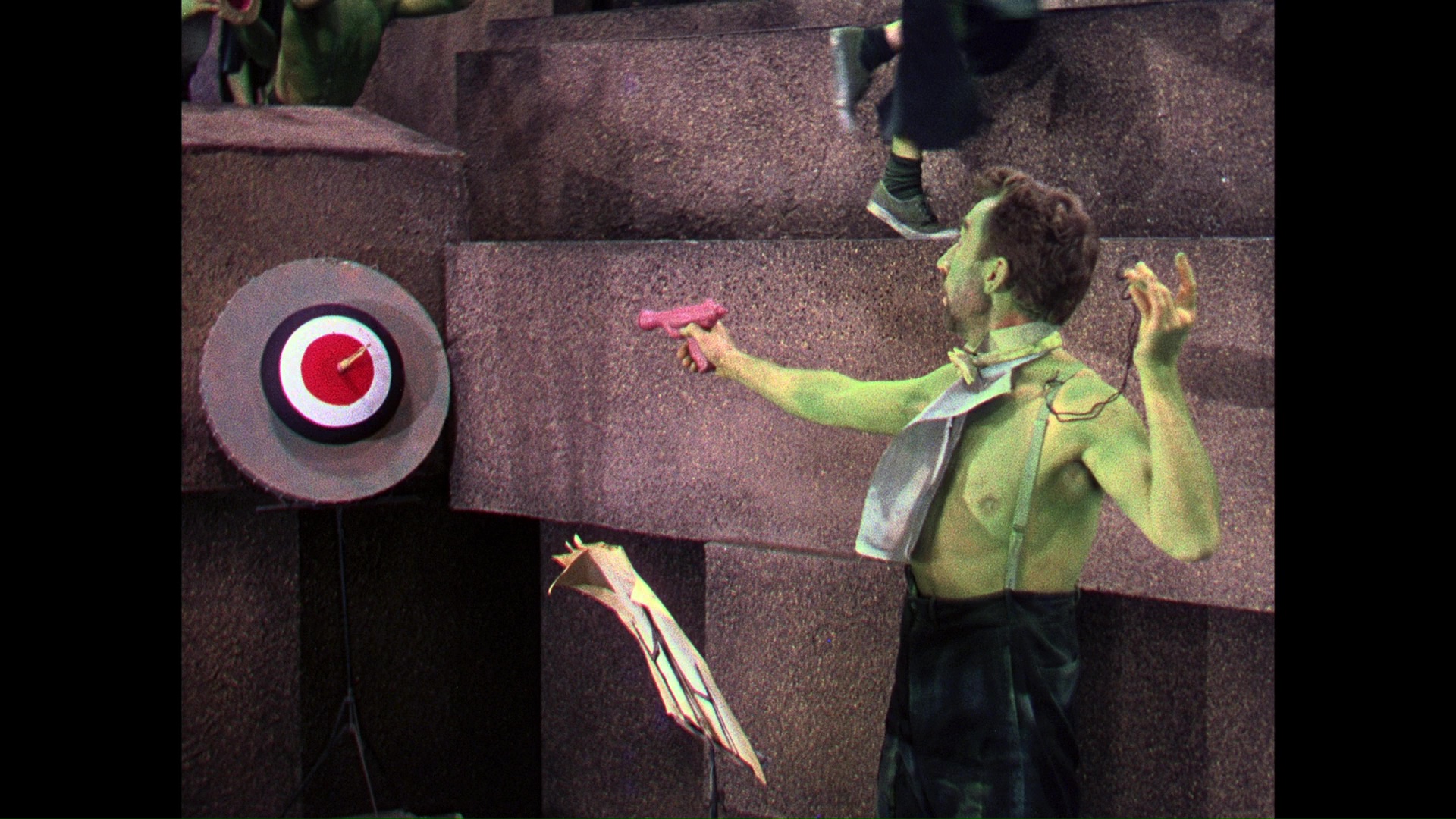 and when Bart slips off into a dream, all three adults play pivotal roles. Terwilliker becomes a maniacal tyrant who's planning to open a
and when Bart slips off into a dream, all three adults play pivotal roles. Terwilliker becomes a maniacal tyrant who's planning to open a  sprawling music institute with several hundred children forced to work punishing practices on a long piano, and Bart's mom is both his hypnotized assistant and his betrothed. Only August as the institute plumber offers hope of escape, and he and the young boy have to join forces to come up with a plan to stop the nefarious Dr. T once and for all as he plans a grand 500-child performance of his music masterpiece, "Ten Happy Fingers."
sprawling music institute with several hundred children forced to work punishing practices on a long piano, and Bart's mom is both his hypnotized assistant and his betrothed. Only August as the institute plumber offers hope of escape, and he and the young boy have to join forces to come up with a plan to stop the nefarious Dr. T once and for all as he plans a grand 500-child performance of his music masterpiece, "Ten Happy Fingers." 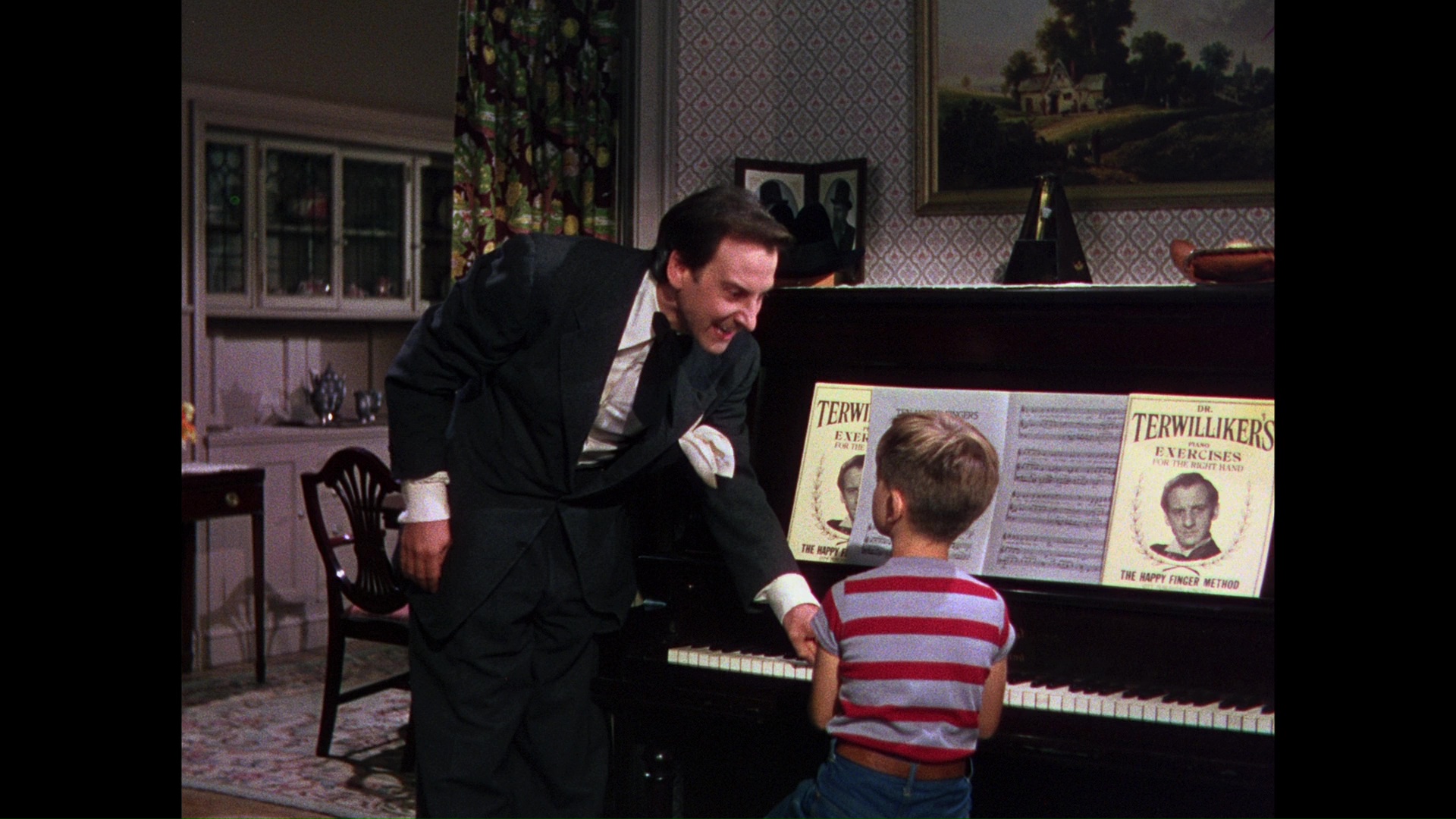 Technicolor palettes
Technicolor palettes 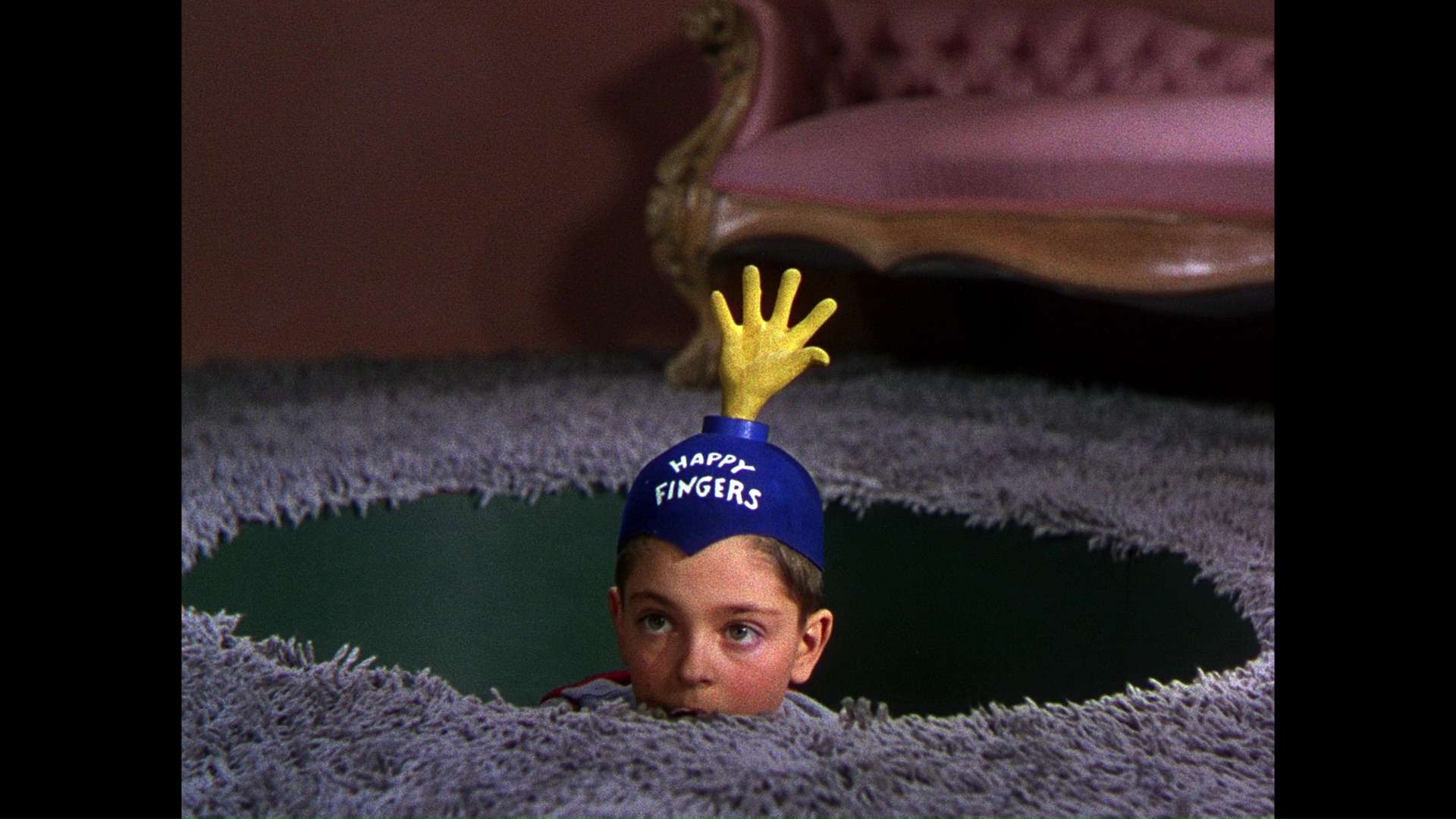 you'll ever see in an American film. The timing of its release likely had something to do with the bad reception, as its portrayal of resentment and fascism simmering under the veneer of all-American suburbia and reconstituted families after World War II wasn't exactly something that would sit well with a lot of audiences.
you'll ever see in an American film. The timing of its release likely had something to do with the bad reception, as its portrayal of resentment and fascism simmering under the veneer of all-American suburbia and reconstituted families after World War II wasn't exactly something that would sit well with a lot of audiences. 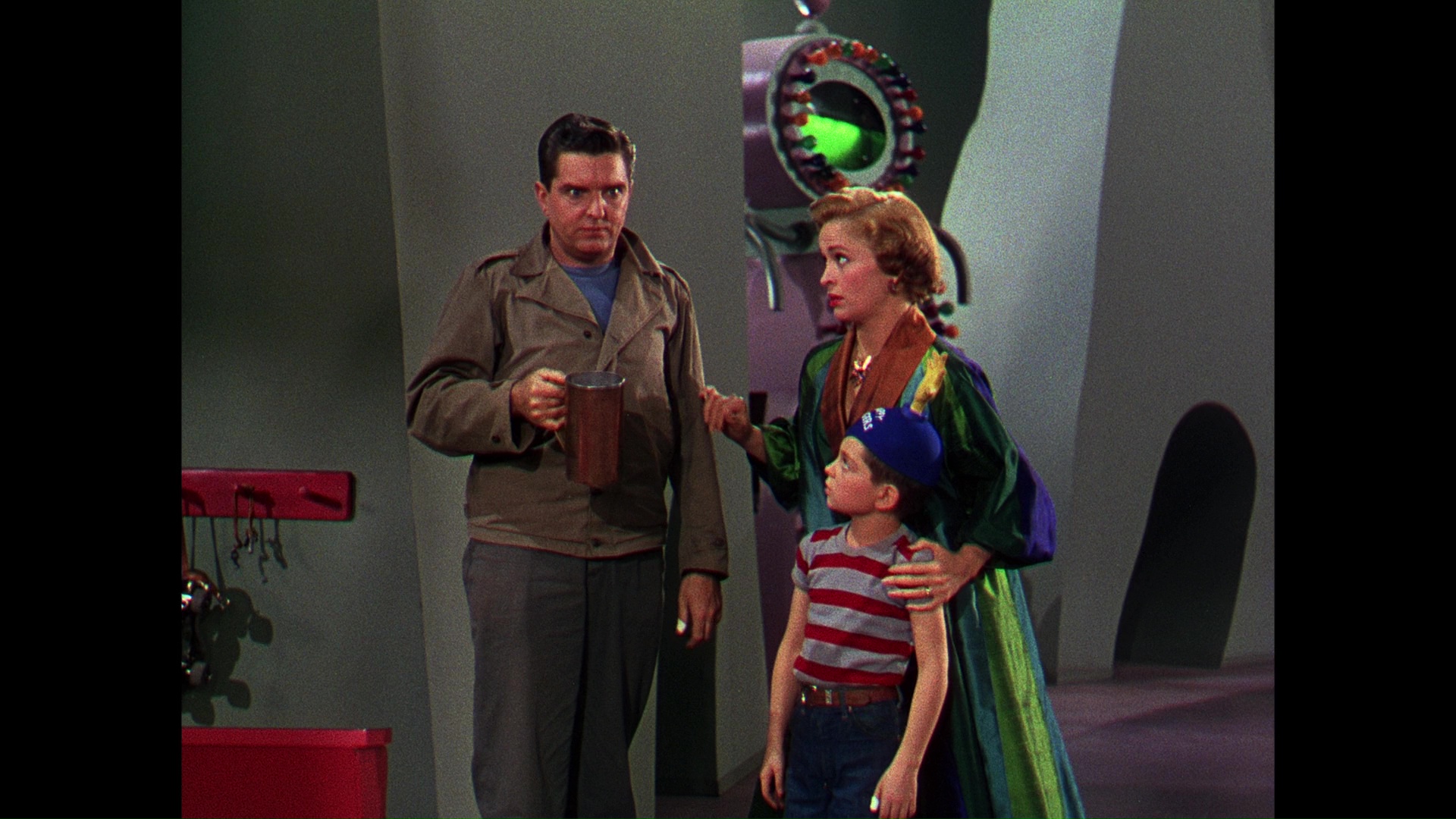 before his death in 1996. They don't really go much into director Roy Rowland, but you'll find out plenty about him in "Father Figure" (18m32s), a new Fiction Factory interview with son Steve Rowland about his dad's entire career. It's a very warm but
before his death in 1996. They don't really go much into director Roy Rowland, but you'll find out plenty about him in "Father Figure" (18m32s), a new Fiction Factory interview with son Steve Rowland about his dad's entire career. It's a very warm but 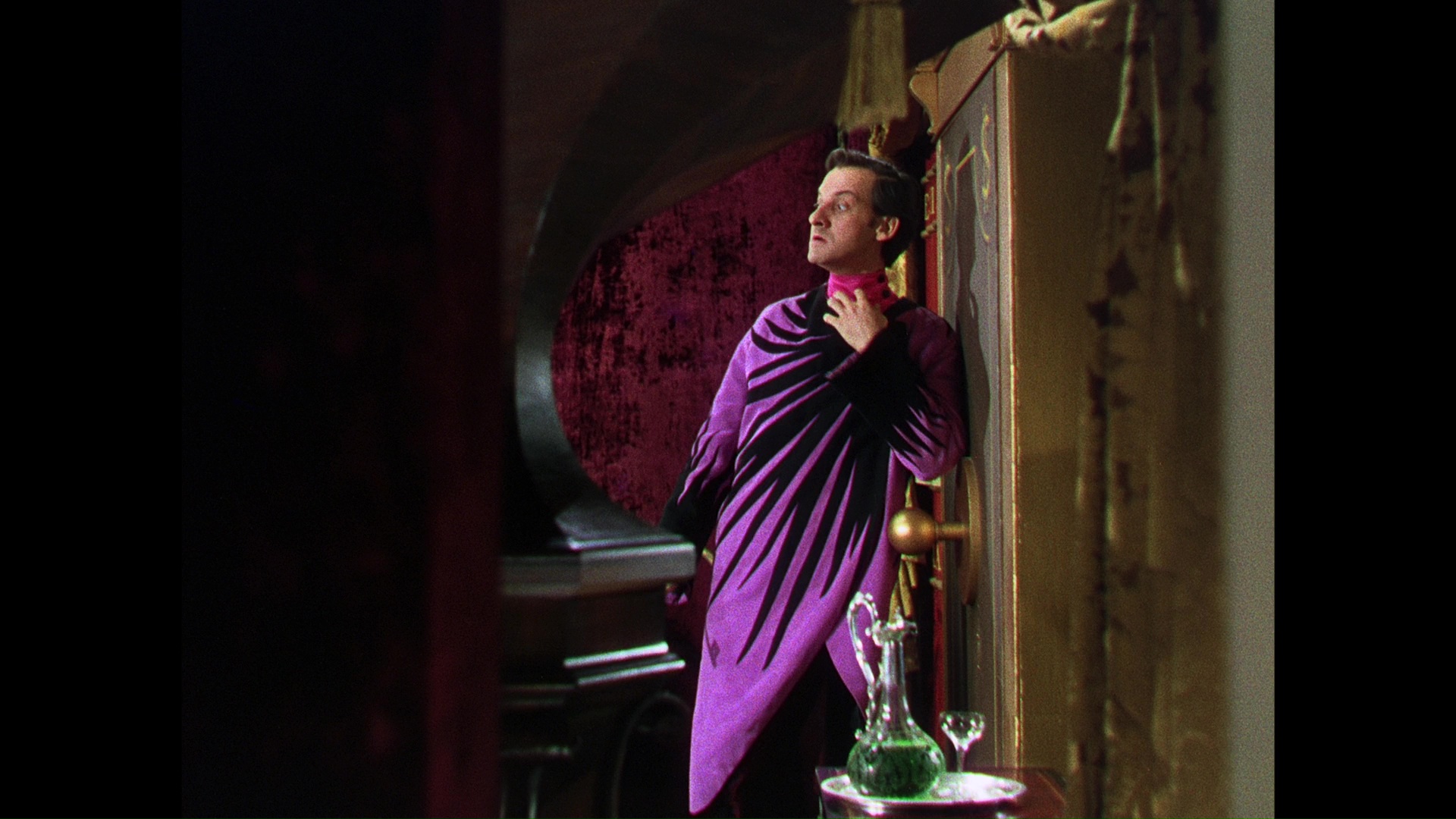 candid chat, including memories of the long, close collaboration between the filmmaker (who also later made Meet Me in Las Vegas, Hit the Deck, and Witness to Murder) and the heartbreak after the film's disastrous preview screening, which led to Kramer promptly hacking out ten songs in the editing room without consulting the director or writer. Feinstein returns for the more substantive, updated "Crazy Music" (16m25s), in which he shows off a letter he received from Dr. Seuss while hunting down the original music, talks about assembling the soundtrack, explains the love he felt for this film after a 1982 screening, and explores the intricacies and Brechtian qualities of Hollander's compositions. (It's nice to see he's a big fan of the impressive "Dressing Song," too.) Ported over from the DVD are the Karen Kramer intro, "Dr. T on Screen," and "A Little Nightmare Music," plus you also get the (really underwhelming) original theatrical trailer and Joe Dante's presentation of the Columbia reissue trailer (under the title Crazy Music) for Trailers from Hell. Since this film had much more extensive still photography than the average studio production, over a hundred great production shots are included in a gallery, while the limited edition (3,000 units) also comes with an insert booklet featuring a new essay by Peter Conheim along with promotional material and press kit excerpts.
candid chat, including memories of the long, close collaboration between the filmmaker (who also later made Meet Me in Las Vegas, Hit the Deck, and Witness to Murder) and the heartbreak after the film's disastrous preview screening, which led to Kramer promptly hacking out ten songs in the editing room without consulting the director or writer. Feinstein returns for the more substantive, updated "Crazy Music" (16m25s), in which he shows off a letter he received from Dr. Seuss while hunting down the original music, talks about assembling the soundtrack, explains the love he felt for this film after a 1982 screening, and explores the intricacies and Brechtian qualities of Hollander's compositions. (It's nice to see he's a big fan of the impressive "Dressing Song," too.) Ported over from the DVD are the Karen Kramer intro, "Dr. T on Screen," and "A Little Nightmare Music," plus you also get the (really underwhelming) original theatrical trailer and Joe Dante's presentation of the Columbia reissue trailer (under the title Crazy Music) for Trailers from Hell. Since this film had much more extensive still photography than the average studio production, over a hundred great production shots are included in a gallery, while the limited edition (3,000 units) also comes with an insert booklet featuring a new essay by Peter Conheim along with promotional material and press kit excerpts. ![]()